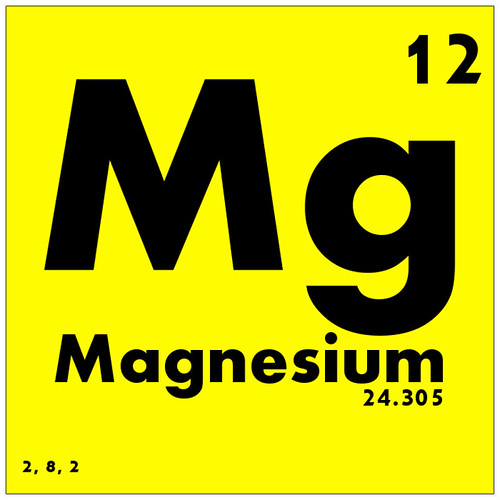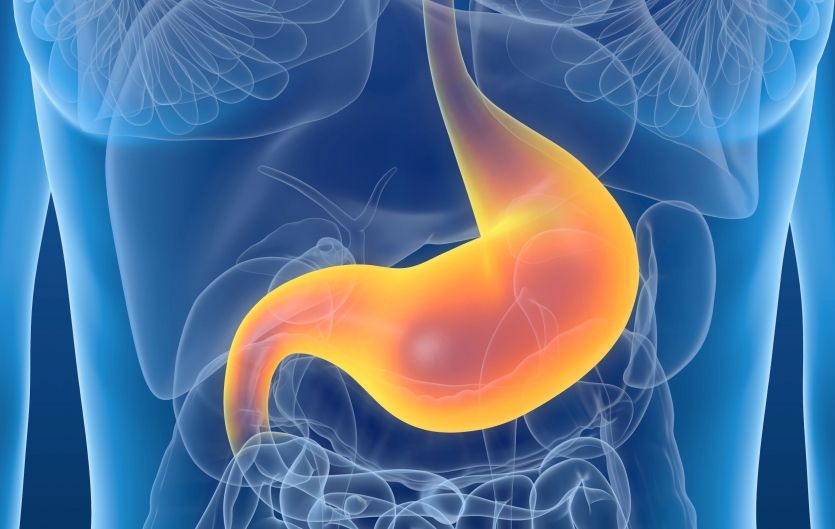
Magnesium, an essential macromineral, is truly one of the unsung heroes of our bodily functions. While it might vaguely conjure memories of the periodic table from high school chemistry, its role within our bodies is far from vague – it’s a key player in hundreds of biochemical reactions. From helping convert food into energy and regulating your nervous system to creating new proteins, magnesium is constantly at work, often without us even realizing it.
Yet, despite its immense importance, researchers estimate that about half of the U.S. population doesn’t get enough of this vital nutrient. What’s even more concerning is that the effects of low magnesium, or magnesium inadequacy, can often be mild and easily overlooked in their early stages. As Naoki Umeda, MD, a specialist in integrative medicine, points out, “Magnesium deficiencies can be hard to diagnose, partly because many of the initial symptoms could indicate a wide variety of other health issues.” Some people may not even have any symptoms at all, at least not initially.
However, these subtle signals, if persistent, are your body’s way of alerting you to a potential imbalance that, left unaddressed, could lead to more serious health complications. This guide is designed to help you become more attuned to these often-missed indicators. By understanding the critical roles magnesium plays and recognizing the signs of deficiency, you can take proactive steps to support your health and overall well-being. Let’s explore the first five subtle but significant clues that your body might be lacking magnesium.

1. **Muscle Cramps and Spasms: The Physical Clues**One of the most common and often irritating signs of inadequate magnesium levels is the unwelcome appearance of muscle cramps and spasms. These involuntary contractions can feel like sudden, painful tightening in your muscles, making daily activities or even restful sleep a challenge. Magnesium is fundamental to proper muscle function, playing a vital role in regulating how our muscles contract and, equally importantly, how they relax. It’s about maintaining a harmonious balance within these crucial bodily movements.
When magnesium levels dip too low, this delicate balance is easily disrupted, leading to the erratic and uncontrolled electrical activity that manifests as frequent cramps and spasms. While these can affect any muscle group, they are particularly common in the legs, sometimes striking unexpectedly during exercise or even in the quiet hours of the night. This can significantly disrupt your sleep and cause considerable discomfort, making you wonder what’s truly going on beneath the surface.
It’s important to remember that occasional muscle cramps can be a normal occurrence, often linked to dehydration, overexertion, or other electrolyte imbalances. However, if you find yourself experiencing persistent, unexplained muscle cramps, twitches, or even numbness in your extremities, it might be a clear signal that your body needs more magnesium. These consistent issues warrant a closer look at your dietary intake and overall magnesium status.
If these muscular issues become a regular part of your experience, it’s a good idea to consider evaluating your magnesium intake. Addressing this deficiency, either through dietary adjustments or a conversation with your healthcare provider about appropriate supplementation, can often lead to a significant reduction in these uncomfortable and disruptive symptoms. Listening to these physical clues can be the first step towards restoring comfort and balance in your body.

2. **Fatigue and Weakness: Energy Levels Diminished**Feeling constantly tired, even after a full night’s rest, or experiencing a pervasive sense of weakness can be a frustrating and debilitating experience. While fatigue and general weakness are common symptoms that can point to a myriad of health issues, they are also prominent indicators of a magnesium deficiency. Magnesium is absolutely essential for the body’s energy production systems, specifically in the creation of adenosine triphosphate (ATP), which is the primary energy carrier in every cell.
Without sufficient magnesium, the intricate process of ATP production becomes compromised, directly impacting your body’s ability to generate the energy it needs to function optimally. This isn’t just typical tiredness that a good night’s sleep can fix; it’s often an unrelenting exhaustion that leaves you feeling drained and unrefreshed, regardless of how much you rest. Individuals may find that even simple daily tasks become challenging, and their overall stamina decreases noticeably throughout the day.
Amber Core, a registered dietitian, emphasizes that “low levels of magnesium can lead to issues related to fatigue and strength, making us feel more tired and weak.” This profound lack of energy can significantly interfere with your daily life, affecting your productivity, mood, and overall enjoyment. If you’re constantly feeling run down and lacking your usual vigor, it’s a sign that your body’s energy factories might not be operating at full capacity due to a magnesium shortfall.
If you’ve noticed a persistent lack of energy that interferes with your daily life, it might be an opportune time to assess your magnesium levels. Addressing this deficiency can lead to significant improvements in your energy and overall vitality, helping you reclaim your zest for life. A simple conversation with your doctor about a magnesium level test could be a crucial step in understanding the root cause of your chronic fatigue.

3. **Mental Health: Anxiety and Mood Disorders**Magnesium’s influence extends far beyond mere physical functions, playing a surprisingly critical role in our mental and emotional well-being. A deficiency in this essential mineral has been closely linked to increased feelings of anxiety, episodes of depression, and noticeable mood swings. This connection stems from magnesium’s deep involvement in regulating neurotransmitters, which are the chemical messengers responsible for transmitting signals throughout the brain and nervous system. It also helps to modulate the body’s stress response, influencing the release of stress hormones.
When magnesium levels are low, this vital regulation can falter, leading to a heightened state of stress and anxiety where everyday challenges might suddenly feel overwhelming. Individuals might also experience increased irritability, nervousness, and a noticeable difficulty in concentrating on tasks. The calm and equilibrium that magnesium helps foster in the brain are absent, leaving one more susceptible to emotional fluctuations and mental distress. This can manifest as anything from mild unease to more pronounced psychological symptoms.
Research has increasingly shown that magnesium supplementation can have a positive effect on mood, potentially reducing symptoms of both anxiety and depression. Magnesium achieves this partly by helping the brain maintain adequate levels of GABA, a neurotransmitter that naturally calms and slows down brain activity, promoting a sense of tranquility. It can also help decrease levels of cortisol, a key stress hormone that stimulates the brain and keeps you on high alert during stressful situations.
If you find yourself struggling with persistent mental health issues such as heightened anxiety, recurring depressive moods, or frequent irritability, it may be highly beneficial to explore the possibility of magnesium deficiency as a contributing factor. Discussing these symptoms with a healthcare provider can help determine if a magnesium imbalance is playing a role, opening a pathway to potential relief and improved mental clarity.
Read more about: Navigating Fintepla: A Deep Dive into Seizure Treatment, Safety Protocols, and Patient Care

4. **Sleep Disturbances: The Restless Nights**Sleep disturbances are another subtle yet profoundly impactful signal that your body might be lacking sufficient magnesium. In our fast-paced world, many attribute restless nights to stress or lifestyle, but magnesium plays a significant, often overlooked, role in regulating our sleep-wake cycles. It helps orchestrate the production of melatonin, the hormone indispensable for signaling to your body that it’s time to wind down. Furthermore, magnesium exerts a calming effect on the nervous system, which is crucial for promoting relaxation and facilitating truly restful sleep.
Without adequate magnesium, the body struggles to enter and maintain a state conducive to sleep. Individuals may report difficulty falling asleep, waking frequently throughout the night, or experiencing restless, unrefreshing sleep. This is partly because magnesium helps to decrease levels of cortisol, a stress hormone known to stimulate the brain and keep you awake when you should be resting. By lowering this response, magnesium aids in falling asleep faster and more soundly. It also supports the brain in maintaining healthy levels of GABA, a neurotransmitter that calms the brain, essential for slowing down mental activity before sleep.
Chronic sleep issues, regardless of their cause, can cascade into a host of other health problems. These include impaired cognitive function, which affects your ability to think clearly and focus, a weakened immune response, leaving you more vulnerable to illness, and an increased risk of chronic diseases over time. The quality of your sleep profoundly impacts your overall health, making any persistent disturbance a symptom worth investigating seriously.
If you are experiencing persistent sleep disturbances, whether it’s difficulty initiating sleep or maintaining it, it may be worthwhile to consider your magnesium intake. Improving magnesium levels through dietary changes or targeted supplementation can often enhance sleep quality, helping you achieve the deep, restorative rest your body needs. Consulting with a healthcare provider can provide personalized guidance on addressing sleep issues and optimizing your magnesium status.

5. **Bone Health: The Silent Impact**When we think about strong bones, calcium often takes center stage, and rightly so. However, magnesium is an equally critical, though often silent, partner in maintaining robust bone health. Magnesium is not just an accessory; it is absolutely necessary for the conversion of vitamin D into its active form, and this active vitamin D is essential for the proper absorption of calcium into our bones. Without sufficient magnesium, even if you’re consuming enough calcium and vitamin D, your body cannot effectively utilize them for bone mineralization.
This crucial interplay means that if your magnesium levels are too low, calcium cannot be properly absorbed and integrated into your bone structure. Over time, this deficiency can lead to weakened bones, significantly increasing the risk of fractures, even from relatively minor falls. In more severe or prolonged cases, an inadequate magnesium supply can contribute directly to the development of osteoporosis, a condition characterized by brittle and fragile bones. This impact is particularly concerning for older adults, whose bodies naturally become less efficient at absorbing magnesium.
What makes magnesium deficiency a particularly insidious threat to bone health is its “silent” nature in this regard. Unlike a sudden cramp or obvious fatigue, magnesium deficiency may not present immediate, overt symptoms related to your bones. Bone density loss can progress unnoticed for years, making it a hidden danger that accumulates over time. This lack of immediate warning signs underscores the importance of being aware of all the subtle indicators of magnesium deficiency.
If you have concerns about your bone health, or if you have been diagnosed with conditions like osteoporosis or osteopenia, it’s vital to consider magnesium as a core component of your overall bone health strategy. Discussing your magnesium intake and status with your healthcare provider can help ensure that you are providing your bones with all the essential nutrients they need to remain strong and resilient throughout your life.
Now, let’s turn our attention to additional critical signs that your body might be signaling a magnesium shortfall, delving into symptoms that can affect your cardiovascular, digestive, neurological, and even dermatological systems. Recognizing these diverse indicators is crucial for taking proactive steps toward better health.
Read more about: 12 Hidden Health Habits Backed by Science That Could Extend Your Life by a Decade

6. **Cardiovascular Health: The Heart’s Vital Rhythm**Beyond the muscles we consciously move, magnesium is a cornerstone for the tireless work of our most vital muscle: the heart. This essential mineral plays a pivotal role in maintaining a steady heart rhythm and regulating blood pressure, both of which are fundamental for a healthy cardiovascular system. It contributes to the health of the endothelium, the delicate inner lining of our blood vessels, ensuring smooth and efficient blood flow throughout the body.
When magnesium levels dip too low, the heart’s delicate electrical activity can become disrupted, leading to concerning symptoms such as heart palpitations. These can feel like a fluttering, racing, or pounding sensation in your chest, often described as a “gentle nudge” from your body, as Courtney Vickery, a dietitian, puts it. More severely, magnesium deficiency can manifest as arrhythmias, which are irregular heartbeats that can indicate a serious underlying issue. The National Institutes of Health (NIH) also points out magnesium’s role in blood pressure regulation, underscoring its broad impact on heart health.
It’s vital to recognize that symptoms like palpitations, chest pain, or shortness of breath should never be ignored. They are serious signals that warrant immediate attention from a healthcare provider. While not always directly tied to magnesium, persistent cardiovascular irregularities could be indicative of a deficiency that, left unaddressed, may contribute to an increased risk of heart disease over time.
Ensuring adequate magnesium intake is a proactive and important step in supporting your heart’s health and preventing potential cardiovascular complications. A balanced approach to nutrition, rich in magnesium, provides the essential support your heart needs to maintain its vital rhythm and keep you functioning optimally.

7. **Digestive Health: The Gut Connection**Our digestive system, a complex network responsible for nutrient absorption and waste elimination, also relies heavily on adequate magnesium levels. This mineral is a key player in promoting healthy bowel function, influencing gut motility and ensuring regularity. It helps relax the muscles lining the intestinal walls and, crucially, draws water into the bowels, which softens stool and facilitates easier passage.
Without sufficient magnesium, this intricate digestive process can falter, leading to a range of uncomfortable symptoms. Constipation is a common manifestation, as the intestinal muscles struggle to move waste efficiently and the stool becomes harder. Megan Wroe, a registered dietitian, notes that “constipation often needs a mixture of supplements, such as magnesium, vitamin C and soluble fiber to resolve fully,” highlighting magnesium’s integral role. Beyond constipation, individuals might experience bloating and general abdominal discomfort, which can significantly impact daily well-being.
Low magnesium levels can also trigger more acute digestive distress such as nausea, vomiting, and a noticeable loss of appetite, as registered dietitian Amber Core explains. This creates a challenging cycle: if you’re feeling nauseous or lacking appetite, you’re less likely to consume magnesium-rich foods, thereby exacerbating the deficiency. Such persistent digestive issues not only cause discomfort but can also hinder your body’s overall ability to absorb essential nutrients.
If you find yourself grappling with chronic constipation, unexplained nausea, or a persistent lack of appetite, it’s certainly worthwhile to consider your magnesium intake. Addressing this deficiency, perhaps through dietary adjustments or a discussion with your healthcare provider about supplementation, can often lead to significant improvements in digestive regularity and overall gut comfort.
Read more about: Empowering Your Plate: 14 Dietary Strategies to Significantly Lower Your Cancer Risk

8. **Migraines and Headaches: The Persistent Pounding**For those who suffer from the debilitating pain of migraines and frequent headaches, magnesium deficiency may be an often-overlooked contributing factor. Magnesium plays a critical role in healthy nerve signaling and regulating blood flow, both of which are intimately involved in the complex mechanisms that trigger these painful episodes. Its influence extends to the modulation of neurotransmitter function, ensuring smooth communication within the brain and nervous system.
When magnesium levels are too low, this delicate balance can be disturbed, making individuals more susceptible to experiencing frequent and severe headaches or migraines. Research has increasingly demonstrated a strong link, showing that individuals with inadequate magnesium are indeed “more prone to experiencing these painful episodes.” The changes in the nervous system caused by low magnesium can manifest as the intense, throbbing pain characteristic of a migraine or the dull, persistent ache of a tension headache.
If you frequently battle with headaches or find that migraines are a regular, disruptive presence in your life, exploring the possibility of magnesium deficiency could offer a pathway to relief. Many studies have indicated that increasing magnesium intake, either through diet or targeted supplementation, can help to reduce both the frequency and severity of these conditions, significantly improving quality of life for sufferers.
This isn’t to say magnesium is a cure-all, but rather an essential nutrient that, when replenished, can help restore crucial bodily functions that contribute to headache and migraine prevention. Consulting with a healthcare professional can help you determine if magnesium supplementation is an appropriate strategy for managing your specific symptoms and improving your neurological comfort.

9. **Skin Health: The Outer Reflection**Our skin, the body’s largest organ, acts as a visible barometer of our internal health, and surprisingly, magnesium plays a quiet but crucial role in its vitality. This mineral is fundamentally involved in the synthesis of proteins and fatty acids, both of which are absolutely essential building blocks for maintaining healthy, supple skin. These processes are vital for cell regeneration and maintaining the skin’s natural barrier function.
When magnesium levels are inadequate, the skin’s ability to regenerate and maintain its integrity can be compromised. As Jennifer W. Cadenhead, executive director of the Laurie M. Tisch Center for Food, Education & Policy at Teachers College, Columbia University, explains, “your skin can become ‘more delicate due to interruptions with cell regeneration’.” This can manifest as dry, flaky skin, a loss of elasticity, and a heightened susceptibility to irritation. Furthermore, an underlying magnesium deficiency can exacerbate existing dermatological conditions such as eczema and dermatitis, making them more persistent or severe.
Observing changes in your skin’s texture or appearance, particularly if accompanied by other subtle symptoms discussed, can be a valuable indicator of an internal imbalance. While external skincare is important, true skin health often begins from within, supported by adequate nutrition.
Considering your magnesium intake when faced with persistent skin issues could be a transformative step. By ensuring your body has enough of this vital mineral, you can support your skin’s natural regeneration processes, enhance its resilience, and contribute to a healthier, more radiant complexion. It’s a reminder that nurturing your body from the inside out yields comprehensive benefits.

10. **Tingling and Numbness: The Nerve Signal Disruptions**Experiencing unexplained tingling, numbness, or a sensation commonly described as “pins and needles” in your hands, feet, or face can be an unnerving and persistent symptom, often pointing to a disruption in nerve function. Magnesium is absolutely crucial for proper nerve signaling, ensuring clear and efficient communication between your brain and the rest of your body. It helps nerves and muscles work together in harmony, facilitating smooth and coordinated bodily responses.
When magnesium levels are too low, this vital nerve conduction can become impaired, leading to a range of abnormal sensations. These paresthesias, as they are medically known, can be particularly bothersome and may sometimes be mistaken for other conditions, such as poor circulation or nerve compression. However, if these sensations persist without an obvious external cause, magnesium deficiency should certainly be considered as a potential culprit. The context states that “Magnesium helps muscles and nerves work together in harmony, so if you don’t have enough of this vital nutrient, you may notice some unusual muscle twitches or tingling or numbness in the extremities.”
Left unaddressed, prolonged and severe magnesium deficiency can have more serious consequences for neurological health, potentially contributing to nerve damage or an increased sensitivity to pain. This highlights the importance of listening to these subtle nerve signals and investigating their root cause, rather than dismissing them as minor annoyances.
If you’re experiencing frequent tingling or numbness, it is imperative to assess your dietary habits and overall magnesium intake. Restoring adequate magnesium levels through a magnesium-rich diet or appropriate supplementation, always under the guidance of a healthcare professional, can help normalize nerve function, reduce discomfort, and support your overall neurological well-being.
***
**Taking Action Against Magnesium Deficiency**
Recognizing these 10 subtle, yet crucial, signs of magnesium deficiency is the first and most empowering step toward reclaiming your health. Magnesium, as we’ve seen, is not just another mineral; it’s a silent architect behind a multitude of bodily functions, from the rhythm of your heart to the clarity of your mind and the strength of your bones. Ignoring its subtle calls can lead to a cascade of more serious health issues, as Megan Wroe reminds us that “chronic magnesium deficiency can have serious side effects if not addressed.”
So, what should you do if these signs resonate with your experience? The most important action is to **consult a healthcare provider**. While many initial symptoms can overlap with other conditions, a doctor can help pinpoint the problem. They can run a blood test, which typically looks for levels between 1.7 and 2.2 milligrams per deciliter, or even check magnesium levels in your urine or red blood cells for a more comprehensive picture. There are even at-home finger test kits available, though professional guidance is always recommended for diagnosis and treatment planning. Early detection and intervention are key to prevent or manage magnesium deficiency and its associated health problems.
When it comes to treatment and prevention, a **”food-first” approach** is always recommended. Building your diet around magnesium-rich foods is the most natural and effective strategy. Think leafy greens like spinach (a cup cooked contains about 157 mg), nutrient-dense nuts (an ounce of almonds provides about 80 mg), seeds, whole grains, dry beans (like black beans, with about 120 mg per cooked cup), avocados (around 58 mg per medium avocado), edamame (about 100 mg per cooked cup), and even tofu (about 58 mg per half-cup). Aiming for two to three sources of magnesium every day, as Wroe suggests, can help maintain a healthy intake.
If dietary adjustments alone don’t suffice, **magnesium supplements** can be a valuable tool. There’s a wide range available, each with slightly different properties. For instance, magnesium citrate is often used to support healthy bowel movements, while magnesium glycinate or taurate are often recommended for relaxation, sleep, and leg cramping. However, it’s crucial to discuss the right dose and type of magnesium supplementation with your healthcare provider, as supplements can interact negatively with certain medications, and excessive intake can lead to side effects like nausea and diarrhea. As Dr. Umeda advises, there’s “no definitive scientific data to date that proves any one type of magnesium supplement is better than another,” making personalized guidance essential. It is also important to remember that the science hasn’t proven topical applications like sprays or oils to be effective, so “it’s better to stick with eating foods high in magnesium or use over-the-counter supplements.”
Finally, remember that your **magnesium needs can evolve** throughout life. Older adults, for example, tend to absorb magnesium less efficiently, making consistent intake even more vital. Individuals with gastrointestinal conditions like Crohn’s disease or those taking certain medications may also be at higher risk of inadequacy. Always consult a professional before making significant dietary changes, especially if you have chronic conditions like kidney disease.
By staying informed, paying attention to your body’s signals, and working closely with healthcare professionals, you can ensure your magnesium levels are optimal, supporting a vibrant and healthy life. Don’t let this unsung hero of minerals remain unnoticed; empower yourself with knowledge and take action today for a healthier tomorrow.



